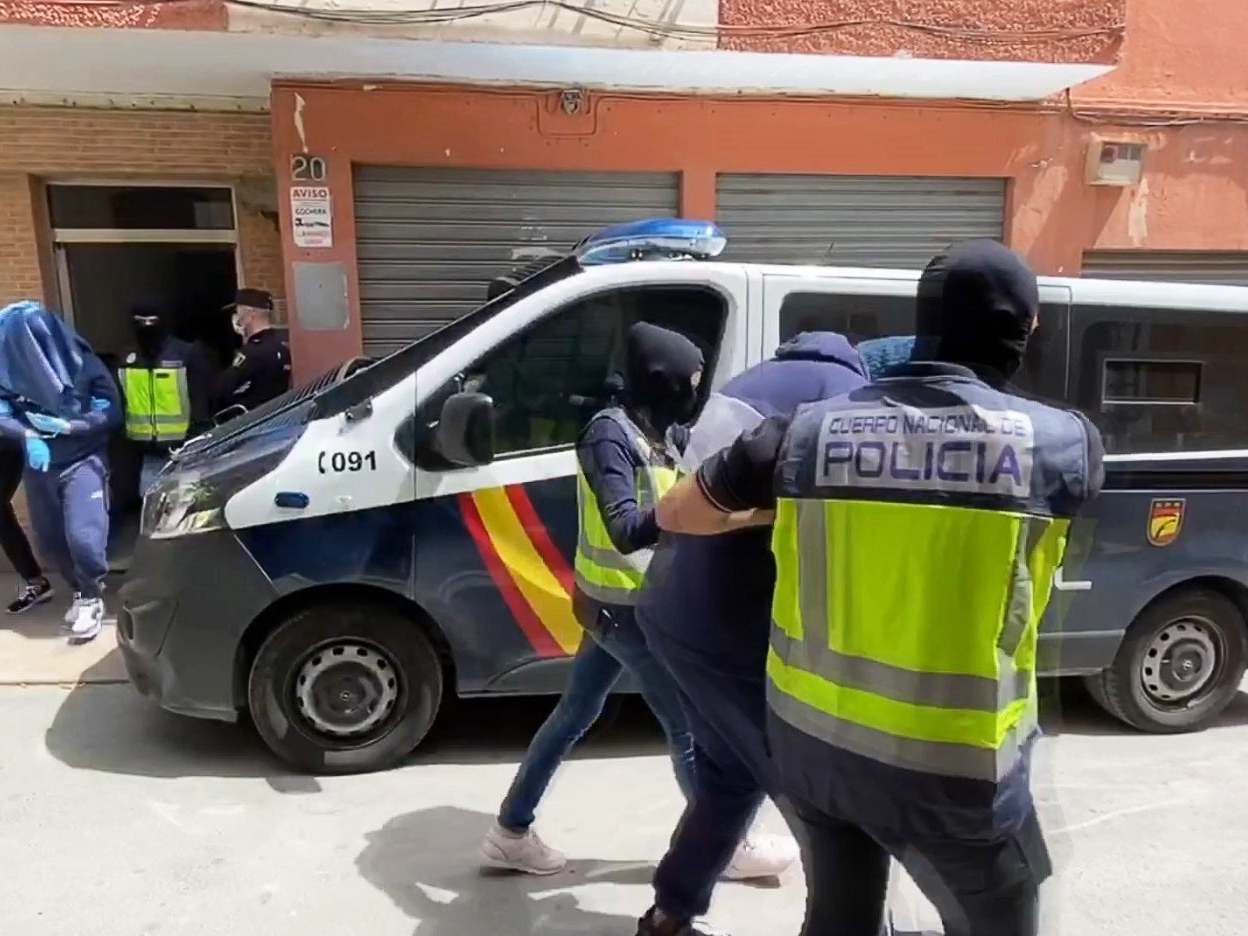British Isis fighter Abdel-Majed Abdel Bary ‘arrested in Spain while hiding during coronavirus lockdown’
Man arrested in rented apartment with two other terror suspects after travelling to Spain from North Africa
Your support helps us to tell the story
From reproductive rights to climate change to Big Tech, The Independent is on the ground when the story is developing. Whether it's investigating the financials of Elon Musk's pro-Trump PAC or producing our latest documentary, 'The A Word', which shines a light on the American women fighting for reproductive rights, we know how important it is to parse out the facts from the messaging.
At such a critical moment in US history, we need reporters on the ground. Your donation allows us to keep sending journalists to speak to both sides of the story.
The Independent is trusted by Americans across the entire political spectrum. And unlike many other quality news outlets, we choose not to lock Americans out of our reporting and analysis with paywalls. We believe quality journalism should be available to everyone, paid for by those who can afford it.
Your support makes all the difference.A London rapper who became one of Europe’s most wanted terrorists has reportedly been arrested in Spain.
Abdel-Majed Abdel Bary, who performed as L Jinny or Lyricist Jinn, is believed to be one of three suspects found hiding in a rented apartment in Almería.
Spain’s Policía Nacional did not name the men but called the main suspect “one of Europe’s most wanted Isis foreign fighters”, and said he was an Egyptian national.
Two sources close to the investigation told the Associated Press that the man was Abdel Bary.
He previously held dual British and Egyptian nationality, but the UK government has been removing citizenship from Isis fighters to prevent their return.
A police spokesperson said he had recently entered Spain irregularly from North Africa.
Almería sits in the southerly region of Andalusia, which has seen a rise in migrant boat crossings from Morocco.
The Policía Nacional suggested that officers had received intelligence that Abdel Bary intended to return to mainland Europe via Spain and had traced him from arrival to the apartment.
“The detainees adapted their behaviour to the circumstances of the ‘state of alarm’ as a consequence of the Covid-19 pandemic, making few exits, separately, and always with masks to avoid being detected,” a spokesperson added.
“Intensive work is being done to verify the identity of the other two detainees and the ultimate reasons for their presence in Spain.”
Police are investigating whether the other two suspects are also returned foreign fighters or were offering Bary “security and logistical support for entry into Europe”.
The trio were being interrogated on Tuesday and scheduled to appear before a National Court judge in Madrid on Wednesday.
The statement said the man thought to be Abdel Bary had been in the Syrian-Iraqi conflict zone for several years and had an “extremely violent profile” that drew the attention of intelligence services.
It said the man’s activities with Isis had been covered by the media, including “extremely graphic” images of alleged war crimes.

In 2014, Abdel Bary was reported to have posted a photo on Twitter showing himself holding a Syrian regime soldier’s head, with the caption: “Chillin’ with my homie, or what’s left of him”.
He was among the British Isis fighters considered to be potential identities for the executioner Jihadi John, before he was named as Mohammed Emwazi.
Abdel Bary is the son of an Egyptian al-Qaeda operative who was convicted in connection with the 1998 US embassy bombings that killed more than 200 people.
He grew up in Maida Vale, London, and joined Isis after his father was extradited for trial in the US.
Adel Abdul Bary was convicted and sentenced to a 25-year prison term in 2015.
Music videos still available online show Abdel Bary performing raps with references to drug use, violence and his family’s experience as asylum seekers in Britain.
In a 2013 Facebook post, he wrote: “I have left everything for the sake of Allah.”
The following year, Twitter posts suggested he had reached Isis’ capital Raqqa, but his account was later taken down.

By July 2015, he was reported to have fled Isis after becoming disillusioned.
Spain’s interior ministry said police had arrested nearly 400 people connected to extremist religious groups since 2012.
More than 400 people “of national security concern” are believed to have returned to the UK from conflicts in Syria and Iraq, but only one in 10 have been prosecuted.
The government brought in a raft of new terror laws that it said would plug loopholes allowing Isis fighters to go free last year.
But it has not yet used the new provisions, instead continuing efforts to remove jihadis’ citizenship that have sparked legal challenges and diplomatic rows.
The UK previously refused to prosecute two members of the “Beatles” Isis cell, which had included Jihadi John, after they were detained in Syria in 2018.
The Foreign Office declined to comment on the arrest in Spain.

Join our commenting forum
Join thought-provoking conversations, follow other Independent readers and see their replies
Comments